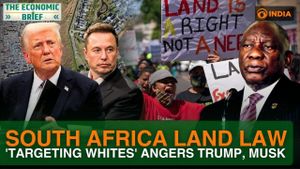Germans began voting on February 23, 2025, in what many are calling one of the most pivotal elections for the country since World War II. Early reports suggest conservatives are strong favorites as the far-right Alternative for Deutschland (AfD) surges.
The polls opened at 8:00 AM local time, allowing over 59 million eligible voters to cast their ballots across Germany’s 84 million residents. With voting scheduled to close at 6:00 PM, exit polls were eagerly anticipated as citizens prepared to influence the future of their government.
The election follows years of political turmoil, highlighted by the collapse of Chancellor Olaf Scholz’s coalition government on November 6, 2024. Scholz’s Social Democratic Party (SPD), along with the Greens and Free Democrats (FDP), faced significant public backlash over mounting economic pressures and discontent with immigration policies. This crisis led to the snap election, originally planned for much later.
Friedrich Merz, leader of the Christian Democratic Union (CDU) and the Christian Social Union (CSU) bloc, is expected to take the reins of power if predictions hold true. He campaigned on promises of cutting taxes, implementing stricter immigration controls, and guiding Germany through economic renewal. His party has consistently led opinion polls but, like past elections, is unlikely to achieve a majority, which means coalition negotiations will be necessary.
Among the most pressing issues driving voters to the polls is the sharp increase in crime, allegedly linked to asylum seekers. Several violent incidents, including car-ramming attacks and stabbings, have fueled public fear and anxieties over immigration. Just days before the election, public outrage intensified around the arrest of suspects linked to recent violent acts, positioning the AfD as the party poised to capitalize on such sentiments.
Significantly, the AfD is projected to secure its best election outcome yet – potentially second place, reflecting growing support within the electorate. The party has been vocal against immigration, calling for “re-migration” policies and gaining traction from elite endorsements, including tech billionaire Elon Musk.
“The AfD is the only party I can trust to save my country,” Musk stated during his support campaign for the party. This endorsement, coupled with vocal support from others within the Trump administration, has shed new light on the dynamics of German politics, stirring controversy over the appropriateness and implications of foreign influences on domestic electoral matters.
Scholz, casting his vote alongside his wife, was also seen pushing for citizens to engage thoughtfully with the electoral process. “Use your right to vote, go and vote, help determine the future of our country,” the President urged from Berlin, emphasizing the importance of voter turnout as millions made their way to polling stations dubbed ‘democracy’s sacred sites’.
Reactions among voters reflect the divided political climate. While some, like Sylvia Otto, expressed concerns about voting for the right, emphasizing the need for change, others have gravitated toward AfD’s calls for stricter immigration measures. Similarly, Merz supporters voiced desires for stronger economic leadership.
A notable shift has been the hardening of public attitudes toward immigration, previously described with the coming of the 2015 migrant crisis. The surge of right-wing populism and skepticism about international cooperation, especially within European frameworks, has stressed security concerns amid rising costs of living post-pandemic.
Results are expected to begin trickling in quickly after polls close, but the final official tally could take days or even weeks. Depending on the voter turnout, the outcome could signal not only the future direction of Germany but also shape the European political climate.
“The election is not just about German politics; it mirrors the global rise of right-wing populism,” said one political analyst, predicting broader European repercussions, especially with the looming presence of Trumpist rhetoric.
The newly elected leadership will face immediate challenges upon taking office, including addressing economic stagnation and potentially devising strategies to engage with strained transatlantic relations as uncertainties loom over NATO unity and security assurance from the United States.
Germany stands at the threshold of change, with voters preparing to chart the course for their nation amid the turbulent waters of political upheaval and social change.



